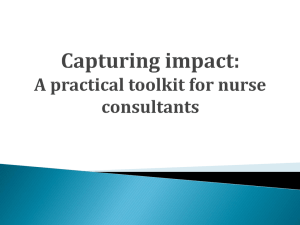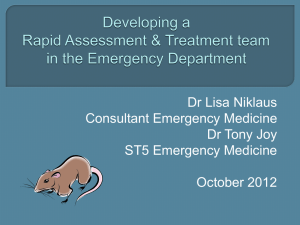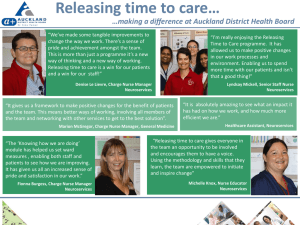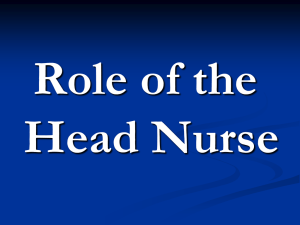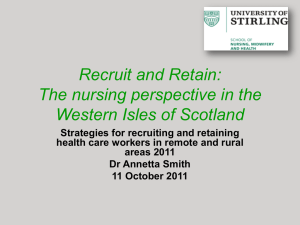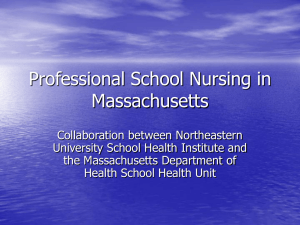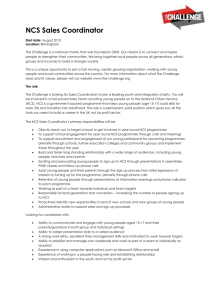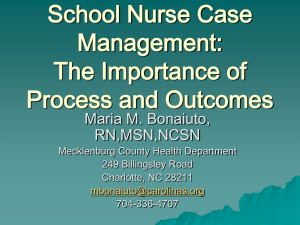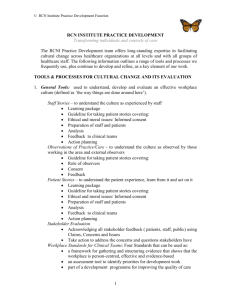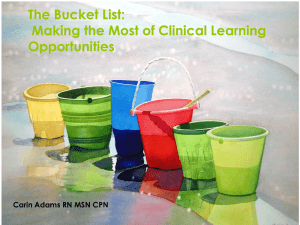Role of the Nurse Consultant, Paula Bennett
advertisement
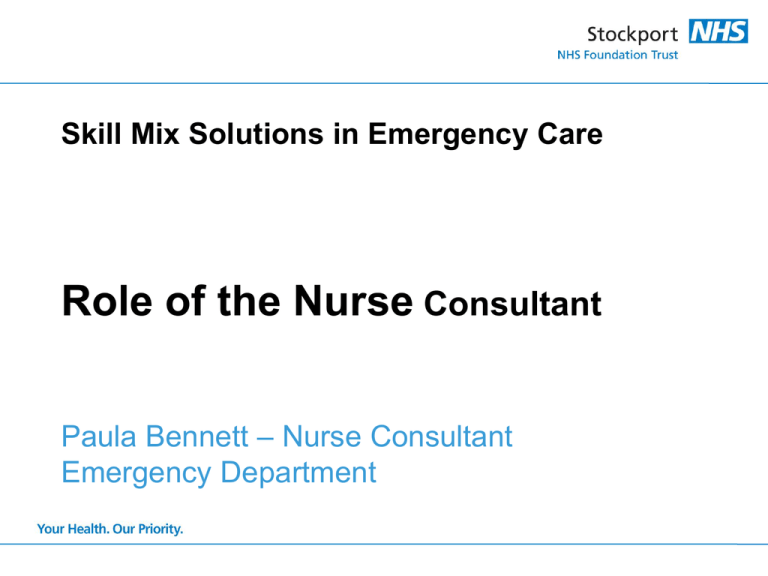
Skill Mix Solutions in Emergency Care Role of the Nurse Consultant Paula Bennett – Nurse Consultant Emergency Department • Background • Domains of a Nurse Consultant role • What can a Nurse Consultant offer in Emergency Care • How can the effectiveness of a Nurse Consultant role be maximised Background • 1st proposed by RCN in 1975 • Tony Blair 1999 – Clinical career path for senior nurses – Maintain expertise at the bedside – Better patient outcomes • Improving quality • Strengthening clinical leadership Domains of the NC role • 4 domains (DH 2000) – Practice (>50%) – Education, training and development – Research & evaluation, practice and service development – Leadership & consultancy • Partnership working • Whole role greater than sum of the parts Current challenges • Emergency Care – Performance – Increasing attendances – Inexperienced workforce – Recruitment problems • Nursing • Medicine • Critical importance of – patient experience – safe and effective care – productivity – innovation Emergency Nursing • Senior Nurses – Significant management remit – ED/MAU/ACU etc. etc. – Performance target and challenges with flow • Nursing roles advanced beyond initial registration – Unique core ED nursing skills – ENPs – ANPs – Non-medical prescribing What can an NC role offer • Transformational culture – Change as a way of life • Staff empowerment • Practice development • Partnership and cross-boundary working What can an NC role offer • Educator, trainer and developer – Practitioners increased confidence and competency – Consistent practice – Improved patient safety – Risk reduction Capturing the impact of NC roles • Clear organisational objectives • For patients, staff and the organisation – What is the • • • • Added value Difference Impact Return on investment How to maximise the impact • Organisations must – Understand and recognise NCs’ value and contribution at executive level. • ensure that NCs have the strategic and organisational authority and the ongoing support necessary to achieve their full potential – Appoint NCs with the full range of skills required to transform practice and services • provide ongoing support for those NCs without the full range of skills to develop these promptly • actively implement succession planning for aspiring NCs – recognise the skills required when developing others for these posts, and how outcomes are dependent on the skills and experience possessed Manley & Titchen (2011) References • Manley & Titchen (2012) Becoming and being a Nurse Consultant. RCN http://www.rcn.org.uk/__data/assets/pdf_file/0005/444299/003574.pdf • Gerrish, MacDonald & Kennedy (2011) Capturing the Impact of Nurse Consultants. Sheffield Hallam University http://research.shu.ac.uk/hwb/ncimpact/index.html • Leary (2011) Capturing the return on investment of Nurse Consultants within English Acute NHS Trusts. Sheffield Hallam University http://research.shu.ac.uk/hwb/ncimpact/Return%20of%20Investment%2 0report%20final.pdf • Gavin-Daley & Mullen (2010) Ten Years On – An evaluation of the nonMedical Consultant Role in the North West. NHS NW. https://www.ewin.nhs.uk/storage/northwest/files/Knowledge_Exchange/ 169/Executive_Summary_and_Main_Findings_September_20101.pdf Any questions?

